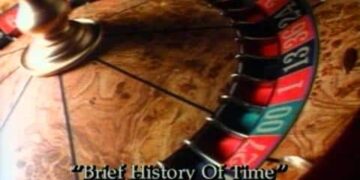As a physicist and writer, Stephen Hawking has inspired millions of people worldwide with his work and ideas. His life story is one of overcoming adversity and achieving greatness despite physical limitations. In this article, I will take you on a journey through the life and work of Stephen Hawking, exploring his early years, contributions to physics, personal life, and legacy.
Introduction to Stephen Hawking’s life and work
Stephen Hawking was born in Oxford, England, in 1942. He grew up in a family of academics and was encouraged to pursue his interests in science and mathematics from an early age. Despite being diagnosed with ALS, also known as Lou Gehrig’s disease, at the age of 21, Hawking continued to work and make groundbreaking contributions to theoretical physics.
Early Life and Education
Hawking’s academic achievements began at a young age when he won a scholarship to study at University College, Oxford, in 1959. He obtained his degree in natural science and went on to study at Trinity College, Cambridge, where he earned a Ph.D. in cosmology.
Hawking’s Contributions to Theoretical Physics
Hawking is best known for his work on black holes and the theory of relativity. His groundbreaking book “A Brief History of Time” explains complex scientific concepts in a way that is accessible to the general public. Hawking also made significant contributions to the study of the origins of the universe, proposing the theory of cosmic inflation.
Hawking’s Personal Life – Love Life and Friendships
Despite his physical limitations, Hawking had a rich personal life. He was married twice and had three children. He also had many close friendships, including with fellow physicist Roger Penrose.
Criticism and Backbiting in Hawking’s Life
Like many public figures, Hawking faced criticism and backbiting throughout his career. Some criticized his popularization of science, while others questioned the validity of his theories.
Hawking’s Life Outside of Writing and Physics
Hawking was not just a physicist and writer. He was also a public figure and advocate for disability rights. He made many appearances on television and in films, including “The Simpsons” and “Star Trek: The Next Generation.” He also served as the Lucasian Professor of Mathematics at the University of Cambridge, a position once held by Sir Isaac Newton.
Hawking’s Best Quotes
Hawking was known for his witty and insightful quotes. One of his most famous is, “The greatest enemy of knowledge is not ignorance, it is the illusion of knowledge.”
Hawking’s Best Books – The First Book and The Last Book
Hawking’s first book, “The Large Scale Structure of Space-Time,” co-authored with Roger Penrose, was published in 1973. His last book, “Brief Answers to the Big Questions,” was published posthumously in 2018.
Hawking’s Books in Order
Hawking published many books throughout his career, including “A Brief History of Time,” “The Universe in a Nutshell,” and “The Grand Design.” Here is a list of his books in order:
- “The Large Scale Structure of Space-Time” (1973)
- “Superspace and Supergravity” (1981)
- “A Brief History of Time” (1988)
- “Black Holes and Baby Universes and Other Essays” (1993)
- “The Universe in a Nutshell” (2001)
- “On the Shoulders of Giants” (2002)
- “God Created the Integers” (2005)
- “The Dreams That Stuff Is Made Of” (2011)
- “The Grand Design” (2012)
- “My Brief History” (2013)
- “Brief Answers to the Big Questions” (2018)
Hawking’s Books or Characters Becoming Movies or Other Media
Hawking’s life and work have been the subject of many films and documentaries. His book “A Brief History of Time” was made into a documentary in 1991, and the biopic “The Theory of Everything” was released in 2014. Hawking also made cameo appearances in several television shows and movies, including “The Big Bang Theory” and “Futurama.”
Other Artists Who Inspired Hawking
Hawking was influenced by many artists and thinkers throughout his life. He was a fan of classical music and was particularly fond of the works of Bach and Wagner. He was also inspired by the works of science fiction writers such as H.G. Wells and Arthur C. Clarke.
Other Writers to be Read Absolutely
In addition to his own books, Hawking recommended several other books to his readers. These included “The Selfish Gene” by Richard Dawkins, “The Origin of Species” by Charles Darwin, and “The Elegant Universe” by Brian Greene.
Conclusion – Stephen Hawking’s Legacy and Impact on Science and Pop Culture
Stephen Hawking’s life and work have had a profound impact on science and popular culture. He was a brilliant physicist and writer who inspired millions of people around the world. His legacy lives on through his books, films, and the many scientists he inspired to pursue their dreams. As Hawking once said, “Remember to look up at the stars and not down at your feet.”
Loved our content? Fuel our passion by treating us to a coffee or enrich your collection with the captivating books of Stephen Hawking on Amazon through this link.
Join the WFTS revolution and champion the enduring allure of books with us! We’re committed to keeping your experience ad-free and authentically engaging.
Step into our world, where we value substance over flash, and keep the magic of books alive.









